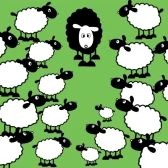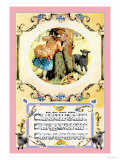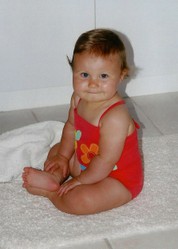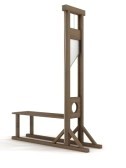
Real meaning of Baa Baa Black Sheep
by ghostwriter
Baa Baa Black Sheep isn't a racist poem but a cute nursery rhyme with a dark true story.
The words to Baa Baa Black Sheep
Baa baa black sheep, have you any wool?
Yes sir, yes sir, three bags full!
One for the master, one for the dame,
And one for the little boy who lives down the lane
The original words
Note the change in the last line
Baa baa black sheep, have you any wool?
|
What is the real meaning of the nursery rhyme "Baa Baa Black Sheep"
Like most English nursery rhymes, there's generally a king or queen and some disgruntled people. So, here is the true meaning behind a very old nursery rhyme.
True meaning of Baa Baa Black Sheep.
King Edward I (17 June 1239 – 7 July 1307), was also known as Edward The Longshanks and The Hammer of the Scots.
He spent a lot of his time involved in battles, seiges and even hostage situations, it wasn't a quiet life by any means.
Whilst returning from the crusades in 1272 he was delivered the news that his father had died, consequently on the 19th August of that year he was crowned king at Westminster Abbey.
Although the crusade accomplished very little it cost a fortune and Edward, Now King of England had to pay for it.
How did kings raise quick money in those days?
They levied taxes.
|
The Pharaohs of Egypt levied a tax on cooking oil King William III taxed windows British Prime Minister William Pitt the Younger taxed hats Oh, that Tea Tax in Boston! |
What can the king tax?
When King Edward looked around his kingdom what he would see more than anything else was sheep, more sheep than people. A flock of 8000 wasn't unusual and over a dozen shepherds to manage them.
Why not tax sheep? - better still why not tax their wool, this way the king receives revenue every time the sheep are shorn.
Baa Baa Black Sheep isn't a racist poem, was intended to teach babies sounds. Onomatopoeia are words that sound like their meaning e.g. baa baa in "Baa, baa black sheep".
The nursery rhyme sounds pretty innocent but the very last line was changed to make it more appealing; it used to say “and none for the little boy who cries down the lane”.
Who was the little boy and why did he cry?
The little boy was the farmer and wasn't happy at paying 66% tax on his wool.
|
The sheep figuratively speaking produced three bags of wool.
One for the master – King Edward I One for the Dame – The Church And one for the little boy who cried down the lane. |
King Edward II was just as bad!
King Edward II (1307-1327) also looked towards sheep for generating revenue and captilizing on the fact that England was renowned for producing the best quality sheep and also the finest quality wool throughout Europe.
The problem was, despite having the finest raw materials to make woolen fabrics, Britain did not have the skilled weavers and dyers to convert it to cloth.
King Edward chose not to ensure the British workers developed those essential skills instead he exported the wool to Flanders, Bruges and Lille, thus depriving the British of work.
You might also like
GranddaughtersThey Engulf Your Heart!! I never expected to feel like that again and had res...
The Real Meaning of Mary, Mary Quite ContrarySuch a beautiful poem, evoking pretty images of a bright colorful garden. Sad...








 The Real Meaning of Mary, Mary Quite Contraryon 06/10/2011
The Real Meaning of Mary, Mary Quite Contraryon 06/10/2011
 The Real Story of Little Jack Horneron 06/09/2011
The Real Story of Little Jack Horneron 06/09/2011
 Real meaning of Jack and Jillon 06/09/2011
Real meaning of Jack and Jillon 06/09/2011
 Goji Berryon 06/08/2011
Goji Berryon 06/08/2011


Comments
I like that this story isn't as evil as Mary Mary Quite Contrary
Ha! Teaching little children about how they are going to be taxed when they grow up, and starting the lesson in the cradle!
The little boy only got one third.
One for the King
One for the Church
The last one he could keep
But if the little boy didn't get it, where did the third bag go? Oh, I see -- it went to the king for taxes, so the king got 2 bags.
Thanks for enlightening us with a song/rhyme that has been around for years but not many people know that history of.
How very fascinating! I never knew what the real story was for Baa Baa Black Sheep and now I do.